Follow the strength and running blog written by a personal trainer and running coach from Dallas/Fort Worth for expert advice on running strength training and nutrition. Never Miss a Blog Post
CATEGORIES
STRENGTH AND RUNNING BLOG: The MOST RECENT 30 POSTS
Stop letting your hormones run the show. Learn how your mindset and environment influence your cortisol levels and the simple, one-minute recovery practices you can start today to find your balance again.
In 2017, while working a corporate job I wrote a blog post dated five years into the future. I described my dream life in vivid detail, right down to the breakfast I'd eat and the way my business would feel. Then, I let it sit in my drafts for nearly a decade.
Reading it now in 2026 is surreal. While the timeline took longer than I imagined, the feeling of my life today is identical to that vision. I am sharing the unedited 2017 draft today as a lesson in the power of knowing your "why" and daring to write it down.
Since 2009, my year-end recaps have been full of accomplishments, travel, races and certifications. But reflecting on 2025, things looked different. The year felt quiet, even a bit flat, compared to the milestones of past years. What I realized is that the stillness was actually a period of preparation. It was the space I needed to build up the energy for the biggest professional move of my life. After twenty years in my corporate role, I finally walked away to branch out on my own. Read more!
The arrival of a new year often brings a specific kind of pressure to reinvent every aspect of our lives overnight. We tend to latch on to the idea that we can only improve through massive action and radical shifts in our daily routines. While the ambition is admirable, this approach is frequently a recipe for overwhelm and a quick return to old habits by mid-February.
True, lasting change rarely takes root in high stress environments. For the rest of us, the path to health lies in a more grounded and thoughtful approach that respects our unique context. By discovering a deeper motivation, committing to the bare minimum, and leading with self-compassion, we can move away from the cycle of burnout. It is about shifting our perspective from reaching a finish line to enjoying the daily journey, allowing wellness to become a part of who we are rather than just something we are trying to achieve.
Forget the pressure to "end the year strong." This December, I am exploring a different approach: ending the year soft. Learn how compassion, rest, and grace can set you up for a healthier New Year than pushing ever could.
Much of what we experience as suffering is just the story we tell ourselves about a situation. Recently, this simple shift in perspective gave me the clarity to finally make a massive decision I have been putting off for years. It is time for a major update.
You put in the work at the gym, but what about the other twenty-three hours of your day?
Workouts are a great start, but true well-being is woven into your whole life: through your sleep, recovery, stress management, and micro-movements. These small, one to five-minute actions, like taking a mindful breathing break or choosing the stairs, are not just for beginners; they are essential for optimizing the results of your hard work.
Discover simple, intentional micro habits in movement, focus, nutrition, and recovery that enhance your health all day long, ensuring your body and mind are working effectively, not just during your workout, but every single day.
We often hear about the need for a "holiday survival kit," but just using the word survival suggests the season is something difficult we must simply endure. The truth is, the holidays provide a wonderful chance to build connection and lean into celebration.
This season, avoid the all-or-nothing trap of thinking you must "start over in January." The most lasting success is built by practicing flexibility now. Learn to use the Dial Mindset Method to adjust your effort based on life's reality and the Nutrition Continuum to make small, incremental upgrades to your eating. Your goal is not perfection, but consistency, which leads to confidence and long-term health success beyond the holidays.
Workplace wellness programs that rely on employee motivation or willpower, may be well-intentioned, but they are setting people up to fail. Learn how we lean on behavior change science for sustainable results for the employee and the employer.
Energy is not endless, but you do have some control over it when you apply strategic recovery. I teach you how to recover like an athlete by mastering the 90-Minute Rule. This approach transforms the cumulative stress of work, training, and parenting into lasting focus, higher productivity, and resilience across all parts of your life.
A lot of nutrition guides for half marathon training are overly complicated and aimed at elite athletes, which can be intimidating for the average runner. This blog post is about taking the pressure off by treating your fueling as a personal, no-math-required experiment throughout your 12-to-16-week training cycle. As a health coach and personal trainer, my goal is to give you simple, straightforward guidelines so you can figure out what works best for your body, ensuring you have the energy needed to train well, recover fully, and cross the finish line feeling strong.
In this blog post, I explain why terms like "eat clean" and "cheat meal" can actually undermine your long-term health efforts. As a health coach, I see how this kind of rigid, judgmental language creates frustration and keeps good people feeling stuck. Since no one can even agree on what "clean" means, it turns enjoying food into a confusing moral struggle. I share how letting go of this black-and-white thinking is the key to making sustainable progress. Your health journey should feel supportive and fit your real life, not an impossible ideal.
When we “fall back” at the end of Daylight Saving Time, most people think about gaining an extra hour of sleep. Years ago, I wrote about using that hour to restart morning workouts. Now, I see this moment even more clearly. The time change is more than a bonus hour. It creates a natural opening to reset habits, experiment with morning movement, and rethink the stories we tell ourselves like “I’m not a morning person.” Whether you use the extra hour to move your body or catch up on sleep, this season is a chance to rebuild your morning routine in a way that fits your life.
Runners and athletes use the RPE (Rate of Perceived Effort) scale to gauge how hard their body is working, even when the numbers on a watch don’t tell the full story. It’s a simple check-in tool that builds awareness, prevents burnout, and helps them pace themselves for better performance. In this post, I’ll show you how to take that same concept and apply it to your workday so you can recognize rising stress, manage your energy more intentionally, and find a steady rhythm that supports both productivity and well-being.
Even when we know what to do, sometimes getting started can feel harder than the workout itself. This post explores why resistance shows up, why willpower alone doesn’t work, and how developing skill power, small, repeatable habits that fit real life, builds lasting consistency.
This post explores simple ways to practice digital wellness, from mindful eating without distractions to small phone rituals that bring calm into the day. By reducing digital clutter and creating intentional pauses, you can reclaim focus and enjoy more presence in everyday life. Will you join me in my quest to be more intentional about social media?
Consistency alone doesn’t always create progress. I learned that firsthand when I recorded a video every day for four months and got better at showing up, but not necessarily better at speaking. Real growth came when I found a framework, feedback, and support through Toastmasters. That same lesson applies to health, work, and life: struggles, big or small, often carry the gift and opportunity to grow stronger if we’re willing to see them that way.
Time feels like it’s moving faster every year. Turning 51 reminded me to keep working on my dreams, keep doing the hard things, and spend time on what matters. I put together 51 lessons from 51 years to share what I’ve learned along the way.
I recently found myself scrolling through yet another inbox full of pitches. You know the ones - "Get 100 new clients in 30 days!" or "Scale to 10K months with our lead generator!" Sound familiar? Here's what I've learned after years in the wellness industry: you absolutely cannot buy your way to lasting success. There's a world of difference between writing a check and hoping that solves all your problems, versus putting in the deep, committed work yourself alongside that investment. True progress requires patience and resilience, whether we're talking about personal wellness or creating healthier company cultures.
One of the biggest reasons I hear that people don't have a fitness routine is that they don't have time. And while this can often be true, if we dig a little deeper, it's often more than just a time issue. Sometimes it's energy, which requires a different solution. And sometimes it's a lack of boundaries or support. Let's figure this out together. If you feel like you don't have time to move your body or take care of your health, this one is for you.
When movement falls to the bottom of your priority list, the challenge typically falls into one of three areas: Managing time and habits, Boundaries and Energy, or Support and Delegation. Once you identify which one best fits your situation, you can choose a strategy that feels manageable.
Last weekend I attended the 2025 SCW Fitness Professional’s Convention, Dallas Mania. I left tired in the best way, my brain buzzing with ideas and my body ready for rest. The sessions were packed with practical insights, thoughtful discussions, and reminders of why continuing education matters. I walked away with ten lessons that go beyond the conference and can be applied right away to your own fitness, health, and even the way you approach daily life.
I’ve seen firsthand how fitness mindsets don’t just transform bodies, they transform careers and businesses too. The same principles I’ve taught clients for years, celebrating small wins, staying consistent, avoiding all-or-nothing thinking, and focusing on what you can control, turned out to be the exact tools I needed when I started expanding my workplace wellness business. Applying them outside of fitness gave me new empathy for my clients, because I was suddenly the one battling resistance and self-doubt. What I learned is that these principles go beyond workouts or business strategies. They’re universal tools for behavior change and goal achievement, no matter what area of life you want to grow in.
Run/walk intervals have been my go-to this summer for staying consistent in the Texas heat. They let me keep my heart rate in check, extend my time on my feet, and build endurance without overreaching. Whether I’m using timed segments, going by feel, or following my heart rate, the flexibility helps me adapt to the conditions and train in a way that’s sustainable. This approach works for anyone navigating challenging weather, rebuilding fitness, or simply wanting running to feel good!
A wellness support team is made up of the people who help and support you. Maybe it’s a friend who checks in after workouts, a coworker who walks with you at lunch, or a class where someone notices when you don’t show up. It might also include a therapist, a massage therapist, or a coach who helps you stay focused when life gets full. These little points of connection can make your routine feel more doable and your progress easier to keep going.
Not sure how hard to train today?
Use this quick tool to check your physical and mental readiness. It helps you make smart choices about training intensity based on how you're feeling right now, so you can stay consistent without burning out.
If you’ve built a career, led a team, or managed a full plate of responsibilities, then you already have what it takes to improve your health.
Time management, focus, adaptability, these are the same skills that help you stay consistent with your workouts, eat in a way that supports your energy, and take care of your body long term. You just have to apply what you already know in a new direction.
Your health supports your success.
I know. Perimenopause doesn’t feel like a gift. It feels like brain fog, mood swings, interrupted sleep, and wondering why your pants don’t fit anymore. But somewhere in the middle of all that frustration is an opportunity to get honest about what your body needs now, not what worked for you ten years ago.
The symptoms might be loud, but they’re also signals. And if we stop trying to silence them and start listening instead, they can guide us toward a healthier version of ourselves.
When progress feels slow or uncomfortable, it’s tempting to chase something shiny: a new diet, a new plan, a total overhaul. But what if the problem isn’t your plan? What if it’s just the part where it gets hard? In this post, I’m sharing the simple mindset trick I use to stay focused when distractions pop up, and how the same approach can help you stop starting over in your health and fitness goals.
If you're tired of starting over every Monday, I'm showing you how to build a wellness plan that fits your real life. It's the key to making progress that lasts. Here's how to get started.
STRENGTH TRAINING BLOGS:
I love cardio, running specifically. But after 30, it’s not enough to keep muscle, boost metabolism, or stay strong. Lifting doesn’t replace your favorite workouts, it helps you run, ride, and move better, so you can keep doing what you love for years to come. download my free three week strength training program to get started.
Think results take months? Think again. You can get stronger in a week, shift your mindset in a day, and start seeing progress long before the scale budges. The key? Redefining what success looks like. If you’re tired of chasing quick fixes, it’s time to focus on the wins that actually matter—starting today.
Strength training isn’t just about looking good—it’s about building a stronger, more capable life. Beyond aesthetics, it enhances balance, resilience, and independence, helping you move with confidence and recover more easily from life’s physical challenges. From lifting everyday objects with ease to preventing injuries and staying active for years to come, strength training offers benefits that go far beyond the mirror. No matter when you start, the strength you build today will support you for a lifetime.
Running is more than just putting one foot in front of the other. You need a well-rounded approach that goes beyond the miles to perform at your best, avoid injury, and enjoy the process. That's where my newly established S-T-R-O-N-G framework comes in. I created a system to help runners of all levels build strength, resilience, and consistency. Here, I'll break it down with concrete examples you can apply—and why even experienced runners sometimes need outside guidance and support.
S is for Strength Training
T is for Targeted Recovery
R is for Running Smart
O is for Optimized Nutrition
N is for New Mindset
G is for Growth Focused Plans
Health and fitness tricks and treats. This holiday season, treat yourself to one of my free programs for runners and fitness enthusiasts. From a nine-week healthy habits holiday challenge to a kettlebell program for runners, explore my free offers to see how I can help you reach your goals.
Runners who strength train are stronger, faster, and less injury-prone! While focusing on runner-specific exercises, I’ll show you the benefits of resistance training with one piece of equipment—a kettlebell. This program is five weeks of progressive workouts that take about thirty minutes each, two to three times per week.
Read my story about how my decades-long use of hormonal birth control inhibited my strength and muscle development in the gym. I switched to a non-hormonal copper IUD, continued strength training and running, and saw an increase in muscle and decrease in body fat percentage about a year later.
To improve performance and help prevent injuries, runners need to strength train in all three planes of motion, including the transverse plane. Learn the rotational exercises in the transverse plane that improve core stability, balance, coordination, and power output to benefit your running performance.
How do you fit running and strength training into your training schedule for the best results? How do you avoid over-training? Understand which strength exercises are best for running performance and injury prevention, and how to structure your training to run longer, stronger, and faster.
RUNNING BLOGS
A lot of nutrition guides for half marathon training are overly complicated and aimed at elite athletes, which can be intimidating for the average runner. This blog post is about taking the pressure off by treating your fueling as a personal, no-math-required experiment throughout your 12-to-16-week training cycle. As a health coach and personal trainer, my goal is to give you simple, straightforward guidelines so you can figure out what works best for your body, ensuring you have the energy needed to train well, recover fully, and cross the finish line feeling strong.
Run/walk intervals have been my go-to this summer for staying consistent in the Texas heat. They let me keep my heart rate in check, extend my time on my feet, and build endurance without overreaching. Whether I’m using timed segments, going by feel, or following my heart rate, the flexibility helps me adapt to the conditions and train in a way that’s sustainable. This approach works for anyone navigating challenging weather, rebuilding fitness, or simply wanting running to feel good!
When you train to run a marathon, it may require the development of new skills. Running is a skill, but are you considering the other skills that may need to be cultivated? I highlighted some important skills needed for marathon training: Time management, moving often, moving well, eating enough nutrients, getting enough sleep, having a growth mindset, and tolerating stress. What can you improve in your lifestyle to elevate your training?
Being a runner of a certain age is an image of a robust and confident runner in the best years of her life, aging actively to live her best life forward. With some planning, preparation, and a mindset shift, we can confidently be runners of a certain age!
Can I dig deep and find something to be grateful for in the midst of an injury that is preventing me from running?
It happens to the best of us, sometimes, race day doesn’t align with our expectations. Read about my experience at the Dallas Half Marathon and learn how to bounce back after a poor race performance
Do you have reasons for missing workouts? Or are you making excuses? Do you know how to tell the difference? In this post, I will help you discern between excuses and reasons so that you can move forward in your training despite obstacles, fears, and setbacks.
Work with coach Lea for four weeks to get the exact strategies you need to improve your pace over time. Includes individualized pace suggestions based on your history and experience, weekly running workouts for four weeks, and coaching. Receive education on training, recovery, nutrition, and lifestyle habits to maximize results. Begins August 1, 2022
Running the 2022 Cowtown 5K reminded me not to let what I couldn’t do get in the way of what I could do! How the quote, “what you can, when you can, with what you have” applies to health and fitness.
Apply some of the techniques of traditional meditation practice to your running training to increase focus, calm the mind, and improve performance.
I credit the pandemic with my recently acquired personal record! Three factors worked in my favor: consistency/volume, sleep/recovery, and strength training frequency. Learn how I got faster and improved my performance during the pandemic.
If running on a treadmill is a drag, follow these running coach tips for running outside in the summer heat. You can continue your training through the hot months to not only survive but thrive this summer
Three common running form technique mistakes that are slowing you down. Correct your eye gaze, your arm movement, and your stride to instantly improve efficiency.
Learn about what it means to run a negative split and how to do it effectively to improve race times and finish strong.
When people talk about performance-enhancing drugs, they aren’t usually talking about caffeine, but if used correctly, caffeine can improve your running performance. In this blog post, I’ll teach you how to use caffeine to boost your performance. for key workouts or race day.
If you’ve been forced to run virtual races lately because of the mass cancellation of in-person races, I’ll show you seven ways to make the best of your virtual race experience so that it doesn’t suck!
How do you fit running and strength training into your training schedule for the best results? How do you avoid over-training? Understand which strength exercises are best for running performance and injury prevention, and how to structure your training to run longer, stronger, and faster.
How many miles should I run in a week to make improvements to endurance, and speed, while avoiding an injury? The answer depends. This blog post explores the factors that need to be considered to figure out how many miles to run per week to reach your goals.
The five keys for injury-prevention for runners include proper programming, strength training, recovery, nutrition, and movement quality. Are you covering your bases to avoid running-related injuries?
If you want to improve your running performances, you’ll see a great benefit from a post-race reflection and performance analysis. Use the power of reflection to learn from your mistakes and from your achievements. Every race is an opportunity to learn, evolve, and improve. Download my free printable race-reflection workbook.
Speed workouts are simple, but never easy. Perform this 30-second sprint, 90-second recover running interval workout to train to run faster. Learn who should try these workouts, how to recover properly for best results, how often to perform, and what not to do.
I love running so much that I wrote it a love poem for Valentine's Day. Plus a round-up of more bad poetry on the blog.
If you have questions about running and weight loss, I’ve rounded up the blog posts to help you with answers. Why do I gain weight during marathon training? What to do when your weight loss plateaus from running. Are you running for performance, or running for weight loss? And why it matters that you choose one. I finish my personal story of how I used running as part of my strategy for permanent fat loss.
Try this 30-minute speed-building ladder interval treadmill workout to increase your speed to train to run faster.
If you started running to lose weight, and it worked at first, but your results have stalled, this blog post can help you understand the reason why, and what to do about it to continue to see new weight loss results.










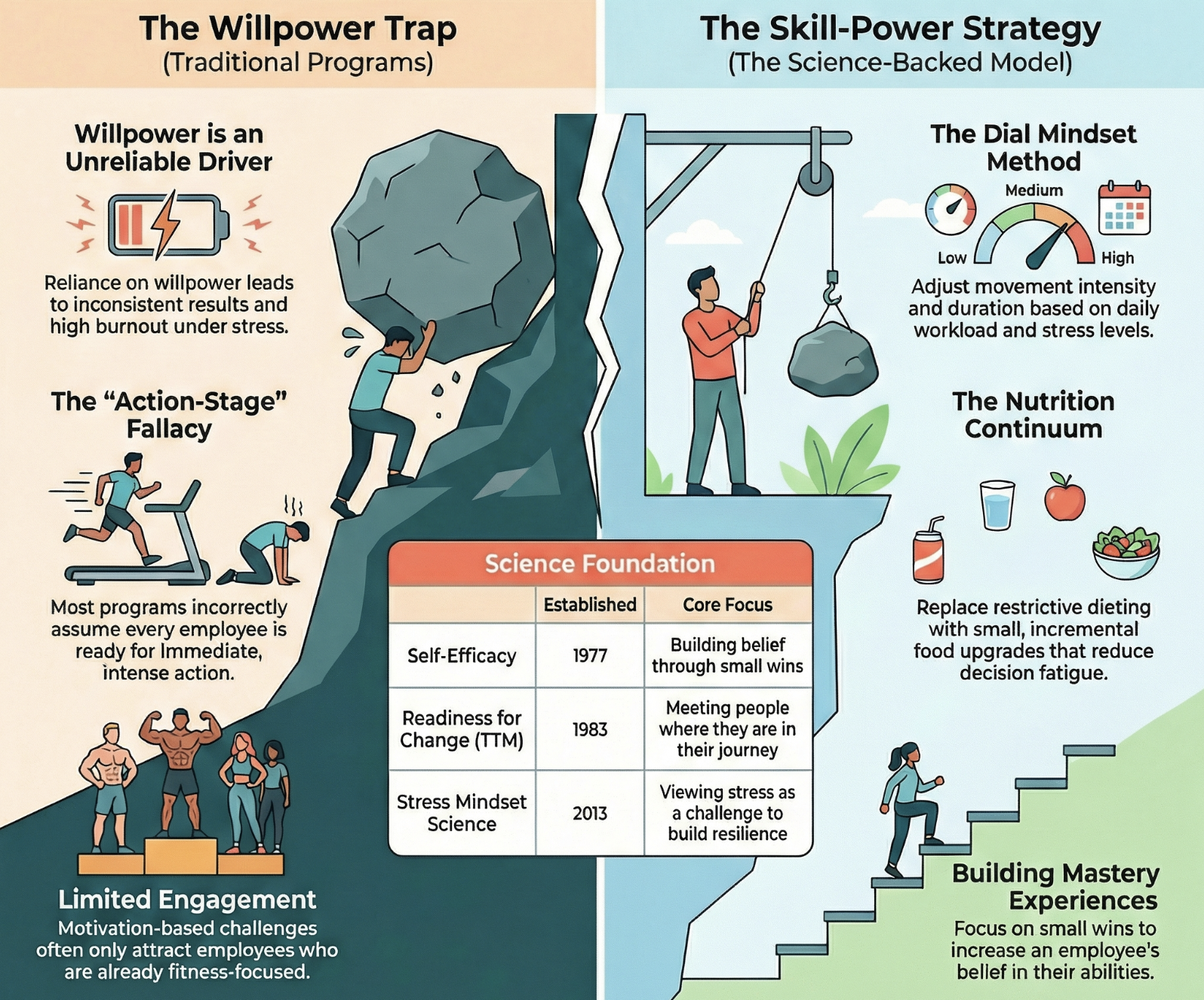















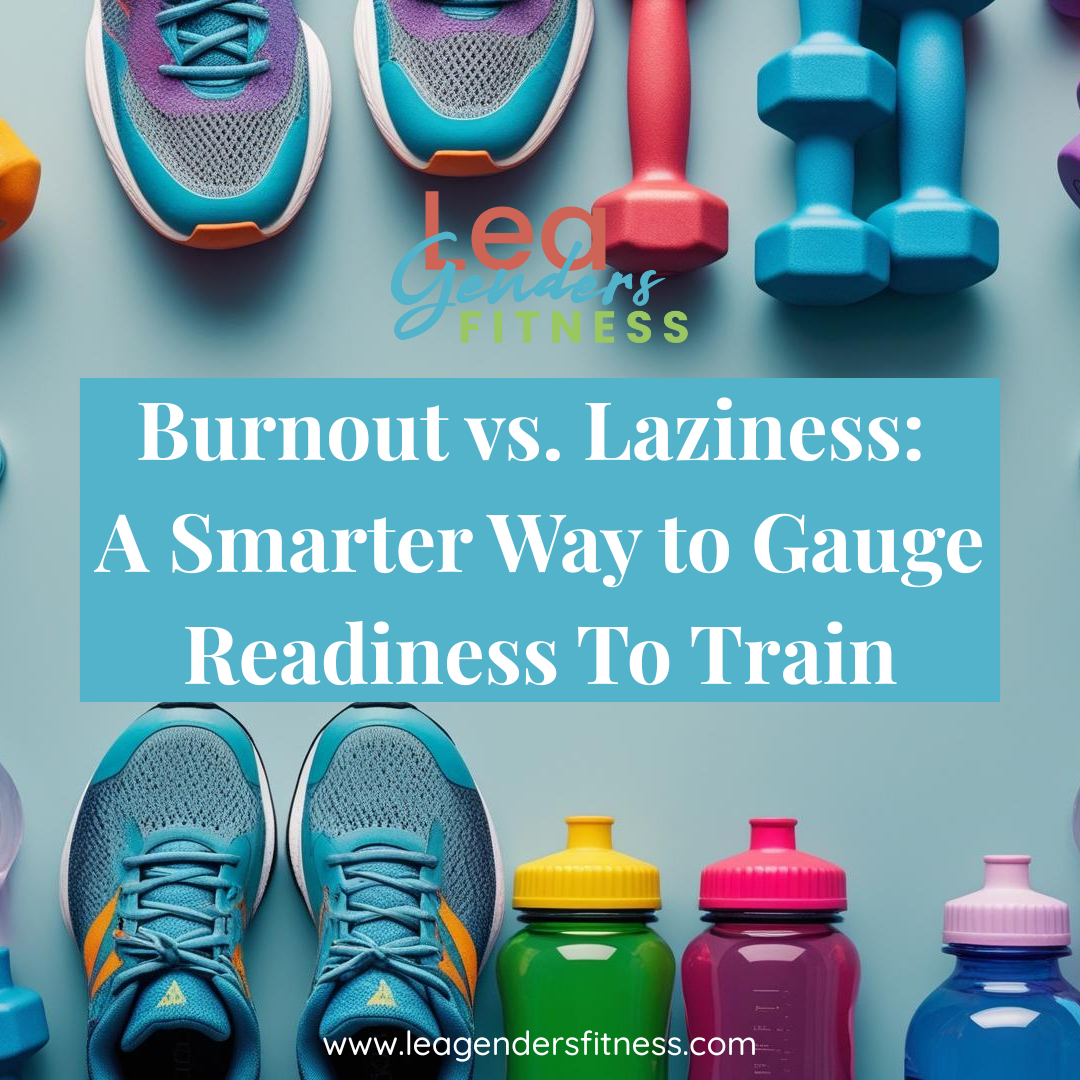














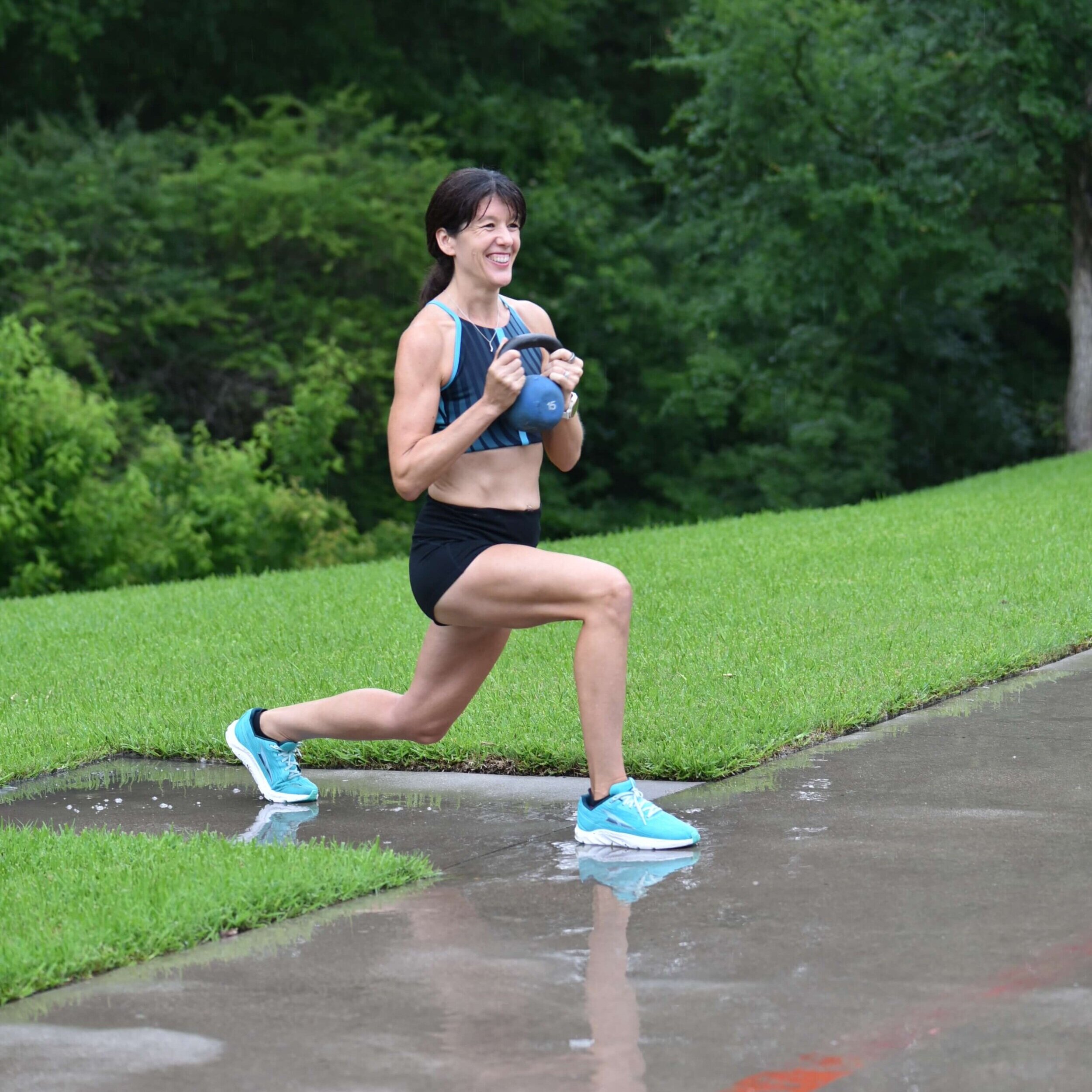


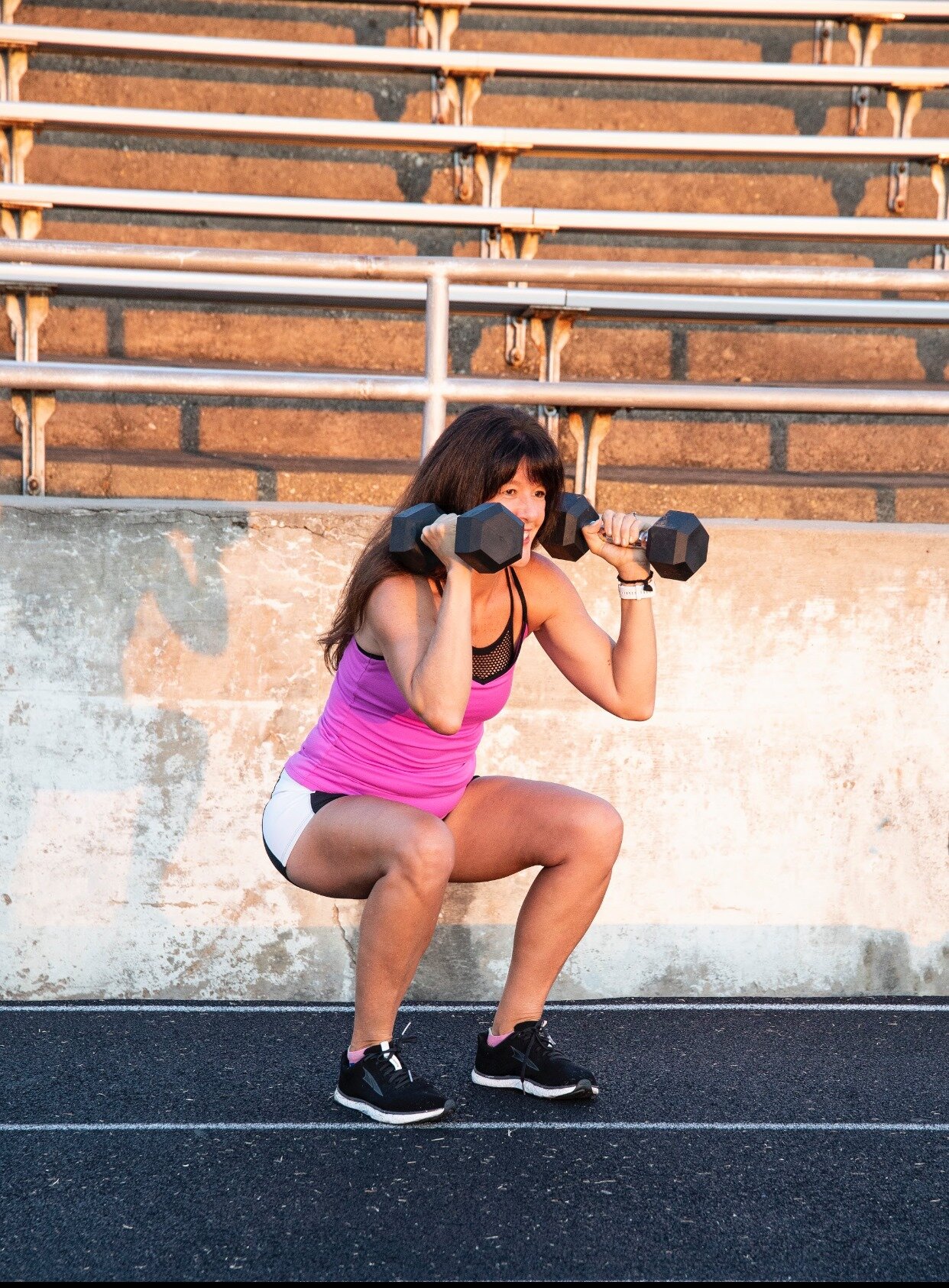








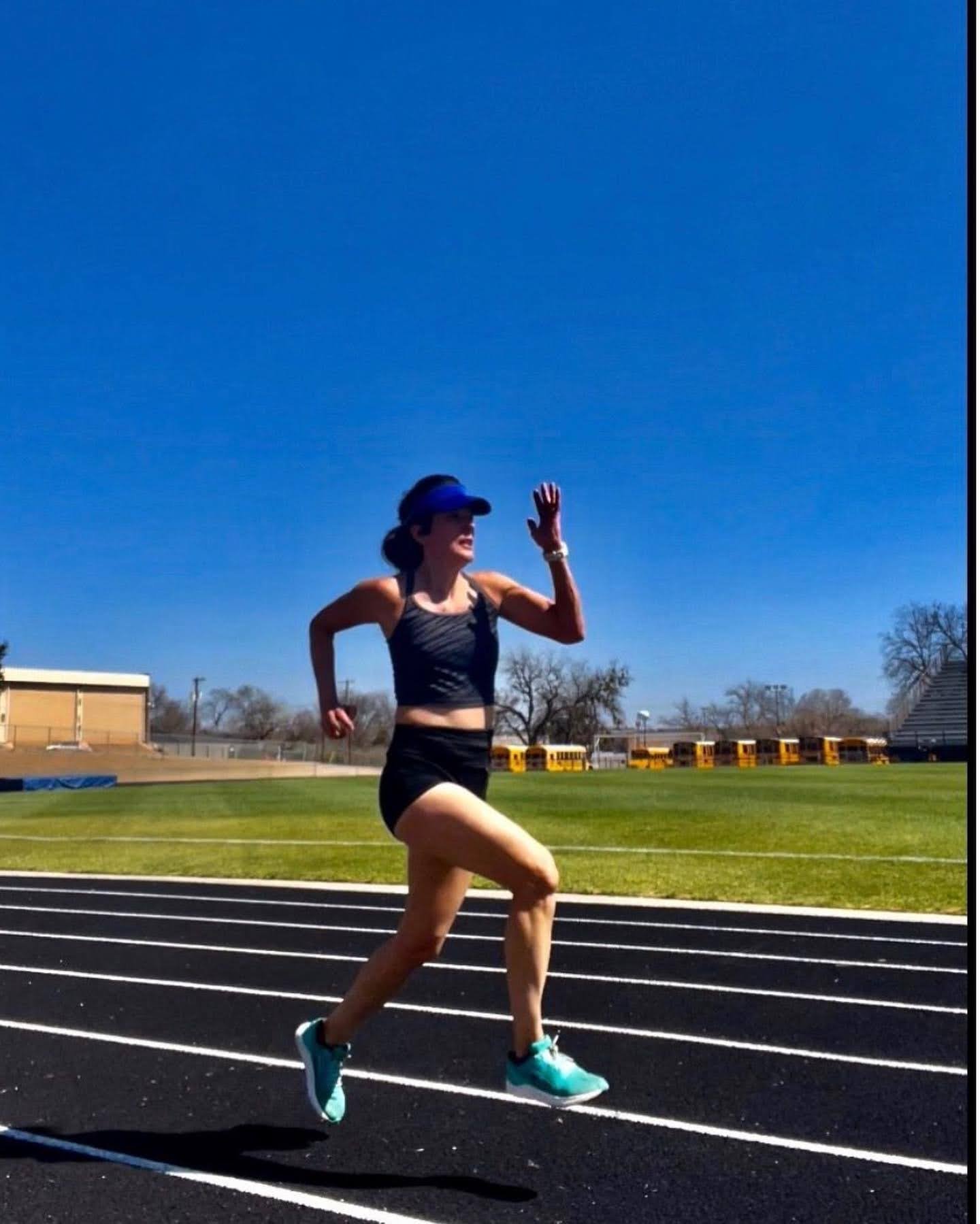


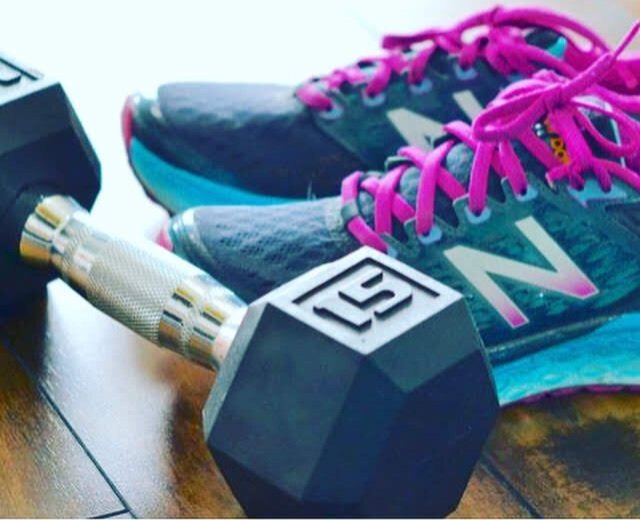











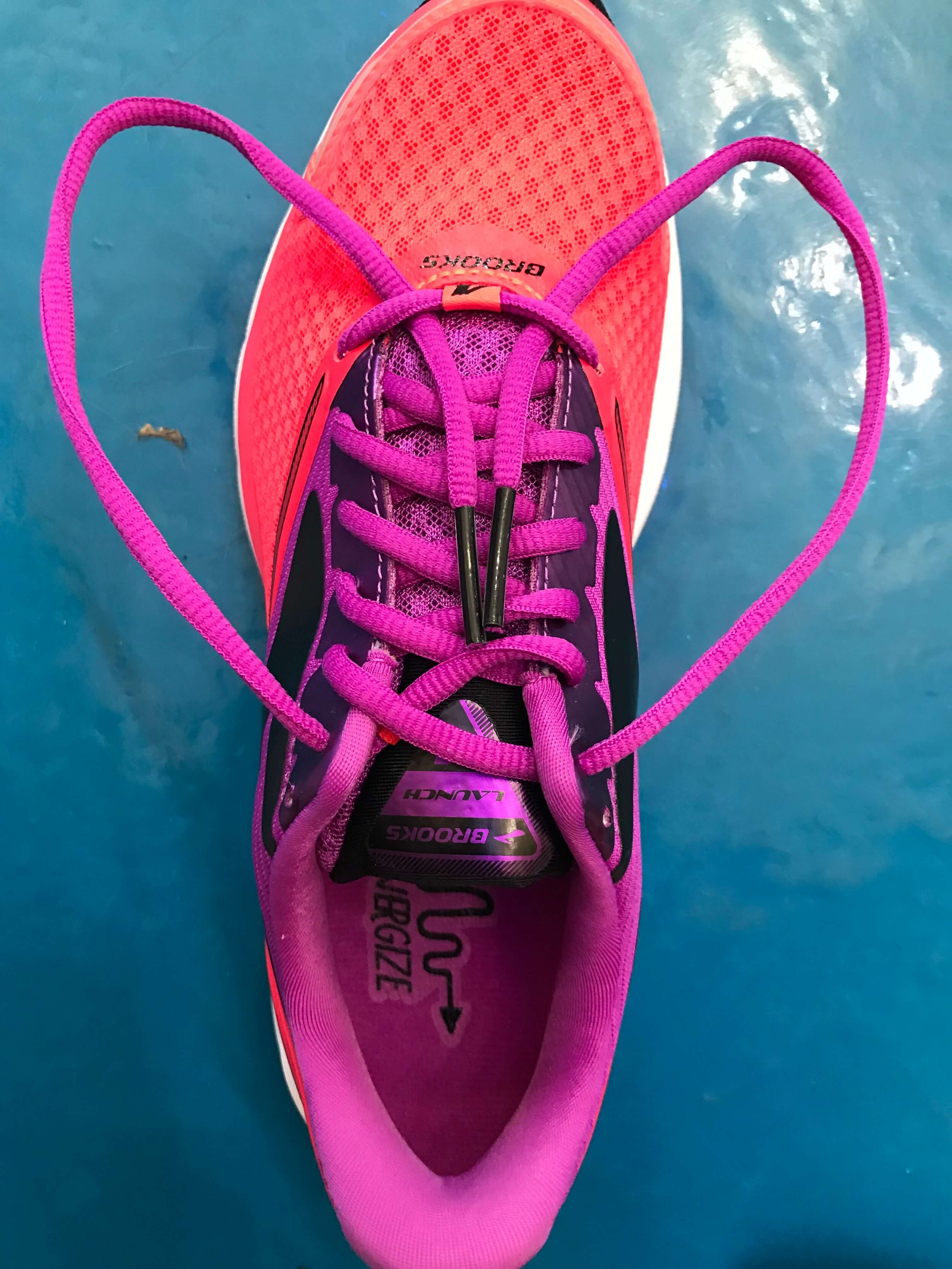



We spent years demonizing carbs, but the conversation is finally shifting from restriction to fiber. It is time to stop fearing fruit and vegetables and start fueling your body. Here is what the rebrand means for your diet.